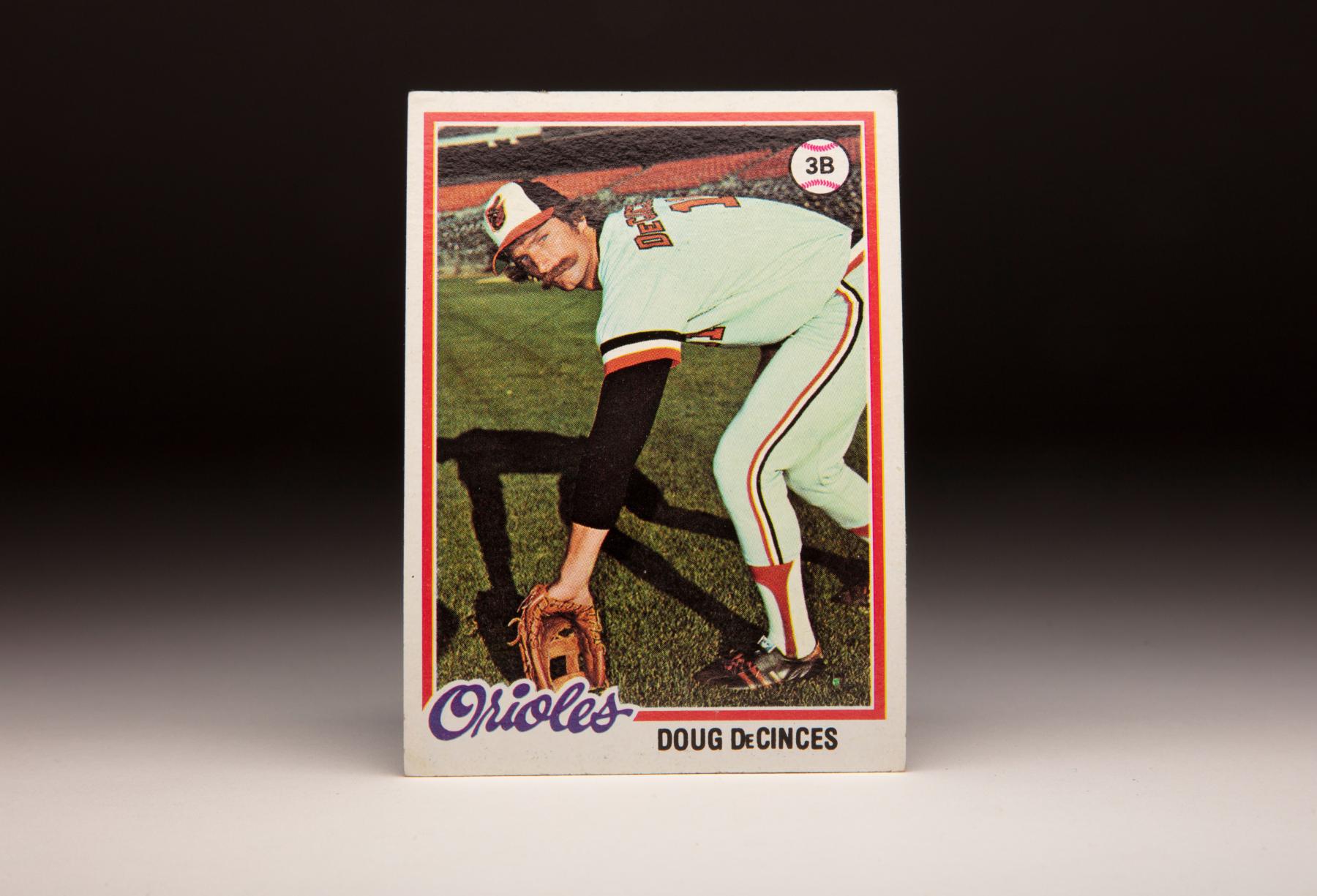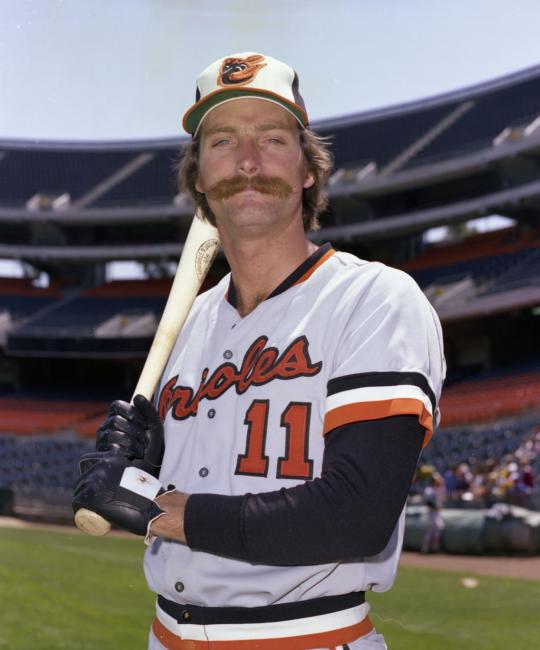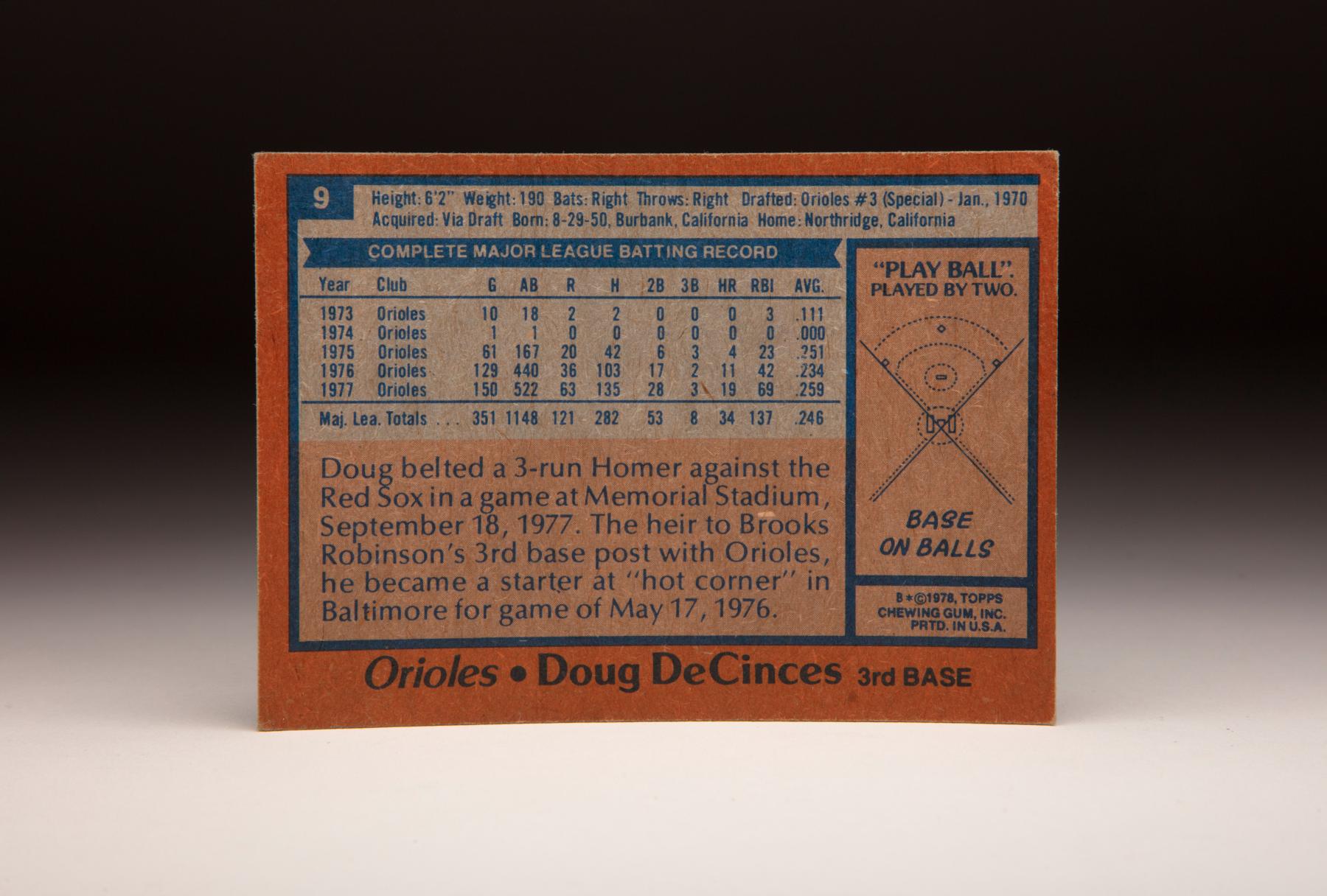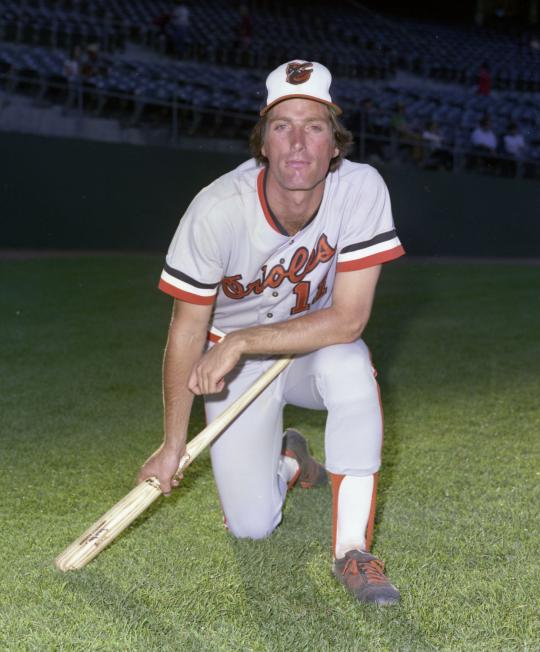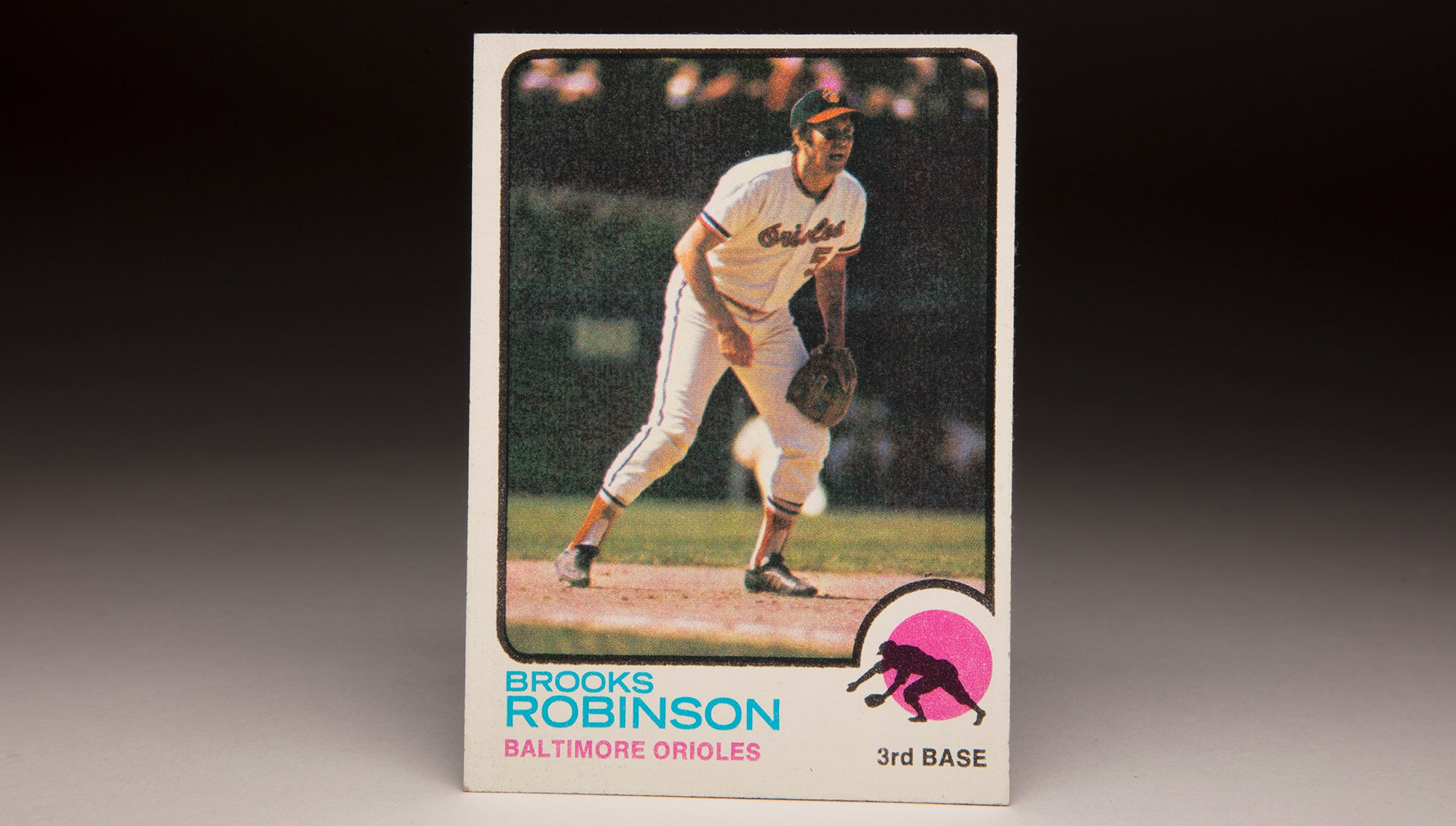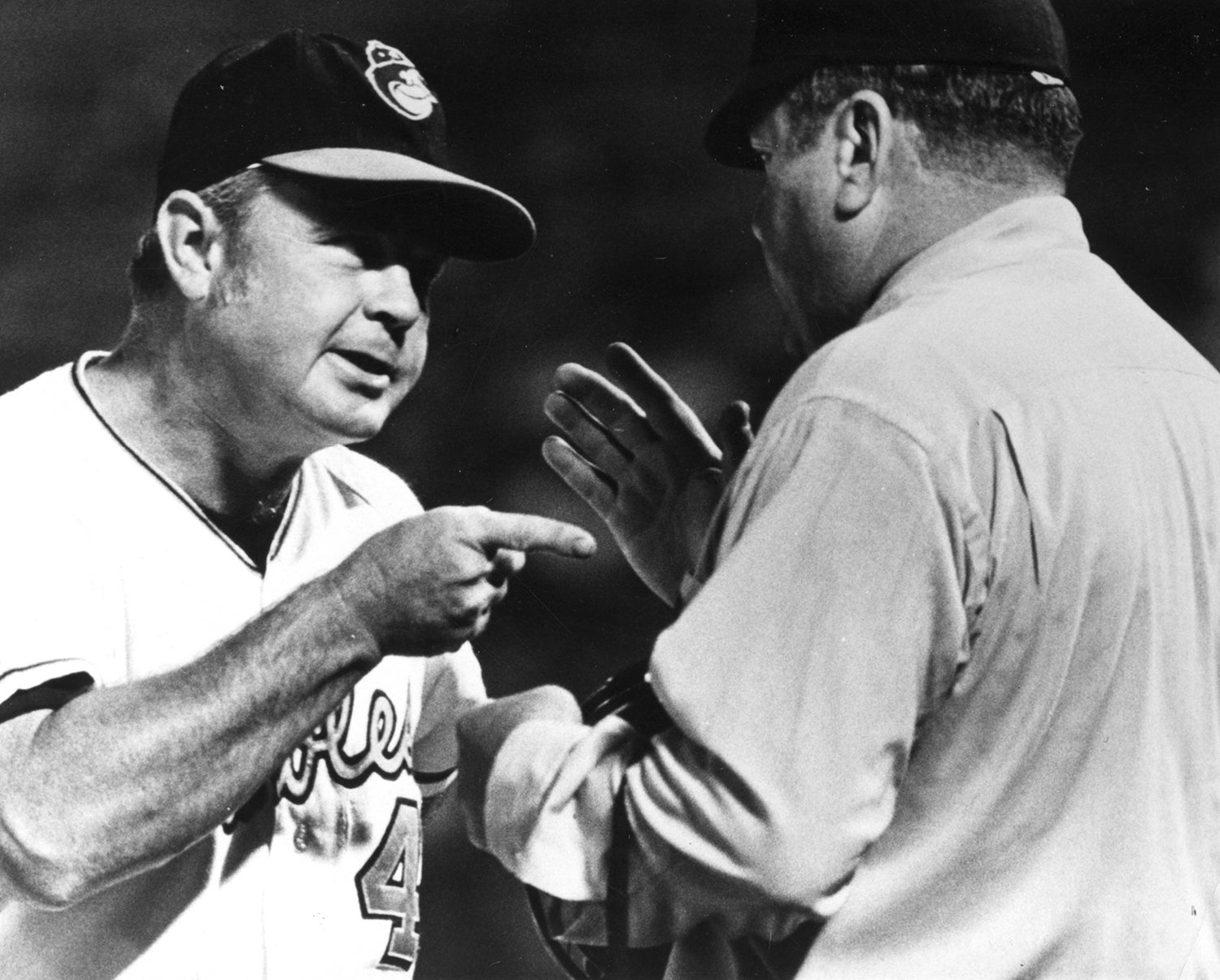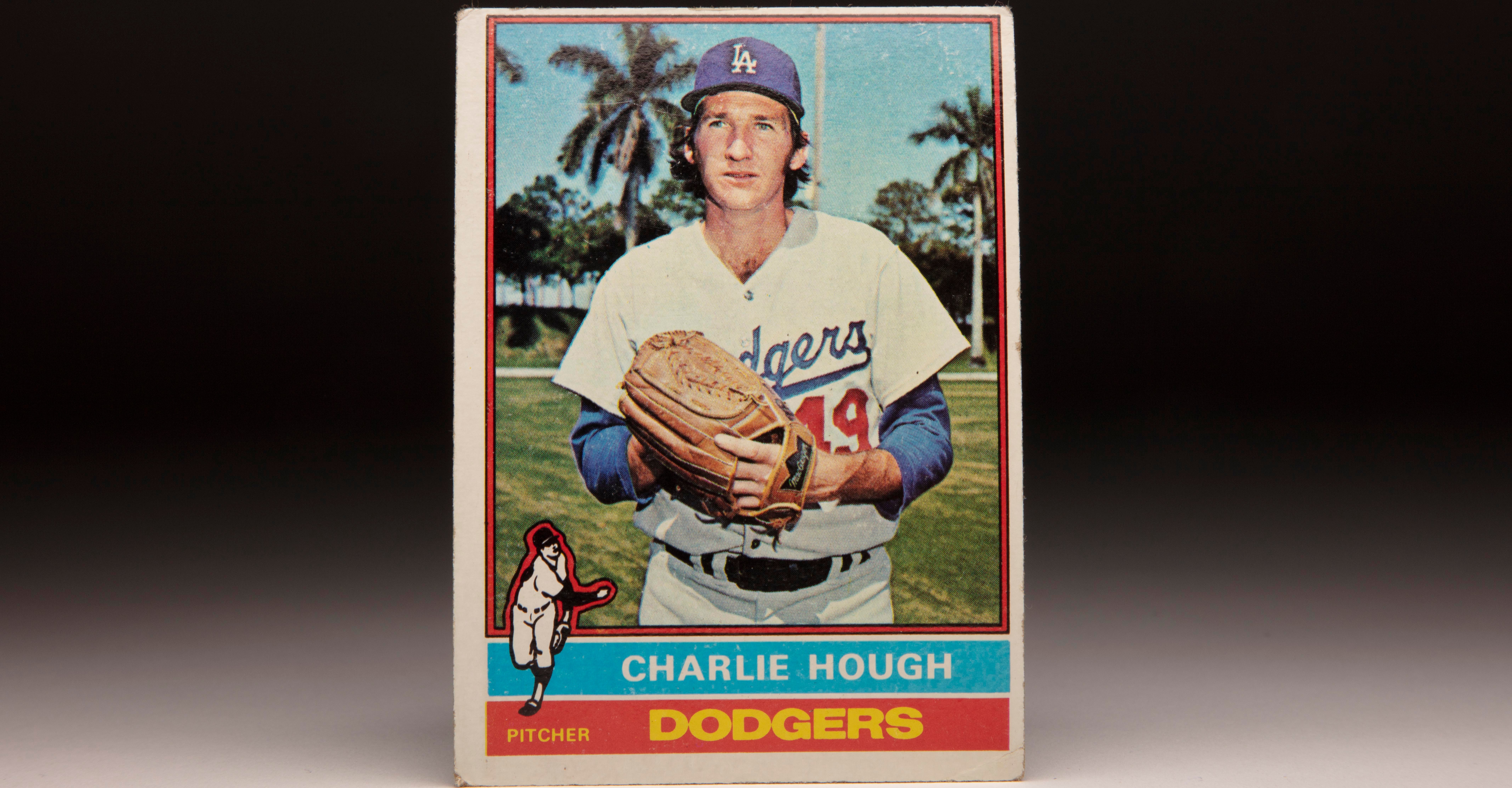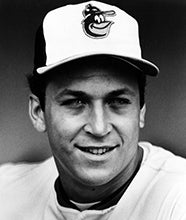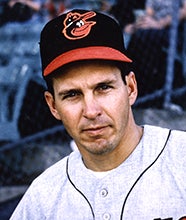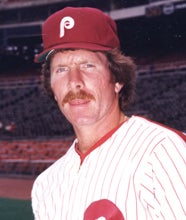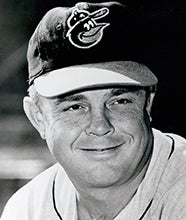- Home
- Our Stories
- #CardCorner: 1978 Topps Doug DeCinces
#CardCorner: 1978 Topps Doug DeCinces
Among those players who followed legends, perhaps only Mickey Mantle or Carl Yastrzemski could understand the pressure that must have befallen Doug DeCinces.
And yet, neither the shadow of Joe DiMaggio over Mantle nor that of Ted Williams over Yastrzemski might have been as powerful as that of Brooks Robinson, who was as a beloved icon as has existed in baseball history.
When DeCinces replaced Robinson at third base for the Baltimore Orioles, nothing less than perfection would have sufficed.
DeCinces was born Aug 29, 1950, in Burbank, Calif. – long before that town became one of the television capitals of the world. Raised in the year-round sunshine of the United States’ southwest, DeCinces was coached by his father in youth baseball before making a name for himself at Los Angeles Pierce College in Woodland Hills, Calif., where he became known as one of the top hitters in the area.
The Padres selected DeCinces in the 18th round of the 1969 June MLB Draft, but DeCinces declined their offer of a $2,000 bonus and returned to school.
Hall of Fame Membership
There is no simpler, and more essential, way to demonstrate your support than to sign on as a Museum Member.
Official Hall of Fame Merchandise
Hall of Fame Members receive 10% off and FREE standard shipping on all Hall of Fame online store purchases.
“It was a hard decision, not signing at first,” DeCinces told the Fort Worth Star-Telegram during his minor league career. “All my life – it’s the same old story – I always wanted to be a pro baseball player. That’s been my object. Then when the time came, I turned it down. I didn’t think the offer was anywhere close to what it should have been. There’s no question that with an expansion club, you’ll move up faster. That’s what they were trying to sell me.”
But after waiting out the summer and fall, DeCinces was selected in the third round of the 1970 January MLB Draft by the Orioles. He reported to Bluefield of the Appalachian League, where he hit .293 in 54 games before earning a late-season promotion to Double-A Dallas-Fort Worth.
He was sent back to Double-A in 1971, where he hit .260 in 78 games – missing a portion of the season due to injury – and drew the praise of manager Cal Ripken Sr.
“He’s hit the ball as well as anyone on the club,” Ripken told the Star-Telegram. “He’s gone to home plate and put to use what we’ve tried to help him with. The fact that he has improved himself has been very impressive.”
At this point, DeCinces was a second baseman – and he returned to Double-A in 1972, this time with Asheville of the Southern League. Ripken remained DeCinces’ manager, and DeCinces hit .263 with 10 homers and 60 RBI. He made it to Triple-A Rochester in 1973 and moved to third base that year, hitting .267 with 19 homers, 79 runs scored and 79 RBI.
“I was signed as a third baseman, but I played only one inning there and then moved to shortstop,” DeCinces told the Rochester Democrat and Chronicle. “The last two seasons, I’ve been a second baseman. At first, when I heard about the switch, my feeling was that this is what the Baltimore organization wanted me to do. And if that’s what they want, that’s what I’ll do. I want to play in the major leagues.”
DeCinces got his wish on Sept. 9, 1973, when he debuted with the Orioles as a pinch runner for Brooks Robinson in a game against Cleveland. He appeared in 10 games down the stretch, getting two hits in 18 at-bats to help the Orioles wrap up the AL East.
He was named to the 1973 International League All-Star team, then returned to Rochester in 1974 – despite hitting better than .400 during Spring Training – batting .282 with 11 homers and 66 RBI while playing all of his 131 games in the field at third base. He appeared in the final regular season game for the Orioles that year, again pinch running for Robinson.
“It took me half a season to get over that,” DeCinces told The Washington Post of the Orioles’ decision to send him back to Rochester in 1974. “Going back to Rochester affected my whole life.”
DeCinces narrowly made the Orioles’ Opening Day roster in 1975 as one of the last players kept by manager Earl Weaver. He was deemed ready for the big leagues – but Robinson was still very much entrenched at third base entering his age-38 season, having hit .288 in 1974 while earning his 15th straight Gold Glove Award.
As a result, DeCinces spent the whole 1975 campaign coming off the bench, playing in just 61 games while hitting .251 with four homers and 23 RBI.
“It’s great just being there in the majors,” DeCinces told the Democrat and Chronicle while the Orioles were in Rochester for an exhibition game that summer. “I just have to accept sitting around and waiting a little longer for (Robinson) to retire.”
Robinson won his 16th Gold Glove Award in 1975 but slumped at the plate, finishing with a .201 batting average and .274 slugging percentage in 144 games.
In 1976, DeCinces moved into the lineup at second base in late April when Bobby Grich was sidelined with an injury. When Grich returned in mid-May, Weaver moved DeCinces to third and took Robinson out of the starting lineup.
“I got off to a terrible start this year, and when that happens some crazy things run through your mind,” DeCinces told The Washington Post. “When you’re in and out of the lineup, you always try to get what you can fast. (But when he became a starter) all of a sudden, the pressure was off me.”
DeCinces finished the season batting .234 with 11 homers and 42 RBI in 129 games and was charged with 19 errors at third base. He heard boos from Orioles fans – perhaps an inevitability with Robinson still on the team.
Robinson returned for his final season in 1977 but played in only 24 games before announcing his retirement on Aug. 21.
“First of all, who’s ever had a player like Brooks Robinson?” Weaver told the Baltimore Sun. “He’s up there with DiMaggio and Williams.”
Meanwhile, DeCinces posted excellent numbers in 1977 – hitting .259 over 150 games with 19 homers and 69 RBI while leading all AL third basemen in assists (330) and double plays (34).
He was even better in 1978, hitting .286 with 37 doubles, 28 homers and 80 RBI while closing the season with a 21-game hitting streak. His Wins Above Replacement total of 6.8 ranked third among AL position players behind only league MVP Jim Rice and Amos Otis.
But in 1979, DeCinces missed the entire month of May due to a lower back injury that made him seek traction to find relief. He finished the year with a .230 batting average to go with 16 homers and 61 RBI in 120 games – and his inspired play, which including a walk-off home run against the Tigers at Memorial Stadium that elicited a curtain call, pushed Baltimore to its first AL East title since 1974.
DeCinces hit .308 with four runs scored and three RBI in the Orioles’ four-game series victory over the Angels in the ALCS, turning in a couple web gems that caught the eye of the national media. Then prior to Game 1 of the World Series against the Pirates, DeCinces was selected to catch the ceremonial opening pitch – from Brooks Robinson.
“I just want to be able to continue to follow in your footsteps,” DeCinces reportedly told Robinson as he handed him the ball.
DeCinces, duly inspired, hit a two-run homer in the first inning to give Baltimore a 5-0 lead in a game the Orioles won 5-4. But the Orioles fell to Pittsburgh in seven games as DeCinces hit .200 with three RBI and five walks.
DeCinces had signed a three-year contract in 1978, and the Orioles gave him a four-year extension midway through the 1980 season. But while his defense was better than ever – his defensive WAR was a career-best 2.2 and he once again led the AL in assists (340) and double plays (41) – he hit just .249 to go with 16 homers and 64 RBI. His back continued to bother him throughout the year and into 1981.
“You get to a point,” DeCinces told the Washington Star News Service, “where you just can’t continue to do all these exercises to play at 75 percent. Maybe I’ve put (surgery) off long enough.”
DeCinces was hitting .223 with the strike interrupted the season, but the time off may have done him good. In the season’s final 51 games, he hit .300 and finished the year batting .263 with 13 homers and 55 RBI in 100 games.
But with Cal Ripken Jr. – at that time a third baseman – ready for the big leagues, the Orioles traded DeCinces to the Angels on Jan. 28, 1982, in what was essentially a one-for-one deal for outfielder Dan Ford.
“We’re sorry to see Doug go,” Orioles general manager Hank Peters told the Associated Press amid speculation that DeCinces, the Orioles’ player representative, was dealt as a reaction to the strike that wiped out a third of the 1981 season. “We had two very good third basemen on our roster in Doug and young Cal Ripken, and by making this trade we were able to strengthen our outfield and add some power.”
The deal proved to be exactly what the Angels and DeCinces needed. Healthy all season, DeCinces hit .301 with 30 homers and 97 RBI to lead California to the AL West title. He hit 11 home runs in 10 games in early August and was widely regarded as the force behind the Angels’ success, finishing third in the AL MVP race while winning his first Silver Slugger Award.
“I have insight into every swing,” DeCinces told the Associated Press. “Even when I foul a ball off, I know exactly what I’m doing and can adjust on the next swing.”
Defensively, DeCinces was superb, leading all big league third basemen with 399 assists. Only four players: Graig Nettles twice, Brooks Robinson twice, Mike Schmidt and Harlond Clift – ever totaled more assists at third base in any season. That mark still stands.
In the ALCS vs. Milwaukee, the Angels jumped out to a 2-games-to-none lead in the best-of-five series, but DeCinces suffered a broken nose – the sixth of his career – when he was struck by a foul ball off his own bat in Game 3. DeCinces continued to play but was charged with a key error in Game 4 on a play where Milwaukee scored three runs in a game the Brewers won 9-5 to tie the series.
DeCinces had three hits and scored a run in Game 5 but lost 4-3 as the Brewers advanced to the World Series.
“It was for (manager) Gene Mauch and (owner) Gene Autry,” DeCinces told the Associated Press of the Angels’ motivation in 1982. “Wanting to do it for both of them just adds to the hurt.”
DeCinces was hitting .313 with 15 homers and 46 RBI through 61 games in 1983 when a separated rib – sustained while reaching for a ground ball in late June – sidelined him for almost two months. DeCinces was named to the All-Star Game and did play, coming to bat as a pinch hitter in the third inning and flying out to center field. It would be his only appearance in the All-Star Game.
In 95 games that year, DeCinces hit .281 with 18 homers and 65 RBI. Following the season, he agreed to a multi-year extension with the Angels that was worth north of $3 million if he hit certain incentive levels for games played.
DeCinces was healthy in 1984 and hit .269 with 20 homers and 82 RBI in 146 games. He missed time as his back flared up again in 1985 but still nearly matched his 1984 numbers (20 homers and 78 RBI) in only 120 games. DeCinces also became the Angels’ all-time leader among games played at third base that season.
“You can control Doug DeCinces for a while – you can control anyone for a while,” Mauch told the Los Angeles Times on July 12 after he hit two home runs and drove in all the Angels’ runs in a 5-3 win over Toronto. “But you cannot control Doug DeCinces forever.”
Then in 1986, DeCinces – at age 35 – hit 26 homers and drove in 96 runs as the Angels again won the AL West. DeCinces hit .281 with a homer and three RBI in the ALCS vs. Boston but missed a chance to end the series when, with one out and the bases loaded in the bottom of the ninth, his fly ball to right field off Steve Crawford was not deep enough to score Rob Wilfong from third base.
The Red Sox won the game in the 11th inning on Dave Henderson’s sacrifice fly – the same Dave Henderson whose two-out, two-run homer in the ninth tied the game. The Red Sox went on to win the series in seven games.
DeCinces became a free agent after the World Series but returned to the Angels on a two-year deal worth about $1.6 million, though only the 1987 season was guaranteed.
Healthy for most of 1987, DeCinces hit .234 with 16 homers and 63 RBI in 133 games for the Angels – numbers similar to other seasons in his career. But the Angels waived DeCinces on Sept. 23, voiding his 1988 deal and denying him a buyout that would have been worth about $140,000 had he been on the team at the end of the year.
“My time with the Angels has mostly been a positive experience,” DeCinces told the Associated Press. “But not the ending. I don’t like the way it was handled.”
Six days after being released, DeCinces was picked up by the Cardinals as they chased the NL East title. He had two doubles in nine at-bats over four games but was ineligible for the postseason due to debuting with the club in September.
On Oct. 7, the Cardinals released DeCinces. He would never play in another big league game, though he spent the 1988 season with the Yakult Swallow of the Japan Central League, hitting 19 homers in 84 games.
Over his 15-year big league career, DeCinces hit .259 with 312 doubles, 237 home runs and 879 RBI. His career WAR was 41.7. Among third basemen who spent the majority of their careers in the 1980s, only Mike Schmidt, George Brett and Buddy Bell posted a higher career figure.
For a player who followed an icon, Doug DeCinces made his own history.
“Obviously, when I go out there to play I can’t be Brooks Robinson,” DeCinces told the Democrat and Chronicle. “I just try to play the best I can and I don’t think about trying to be Brooks Robinson. I just try to be Doug DeCinces.”
Craig Muder is the director of communications for the National Baseball Hall of Fame and Museum

